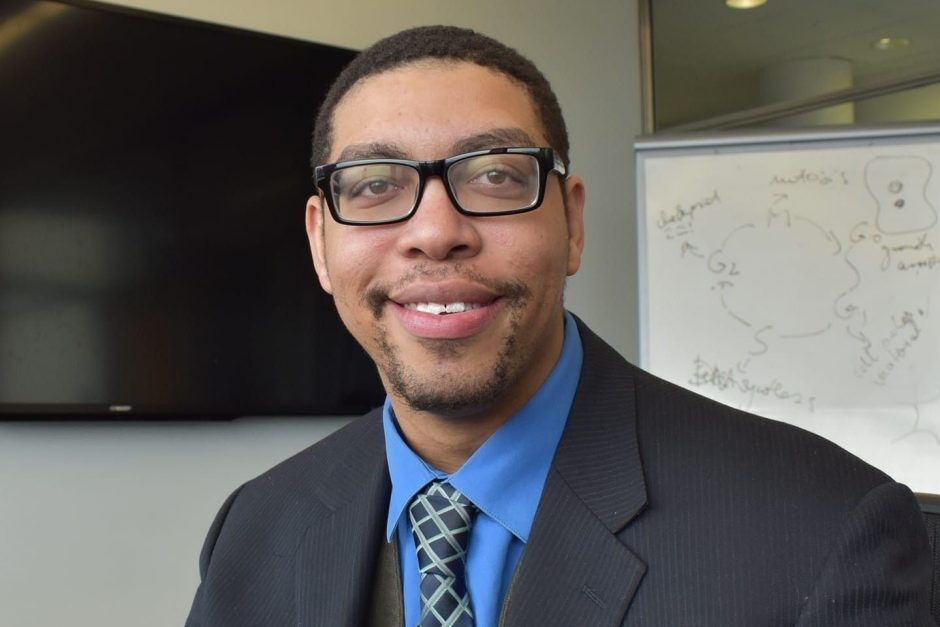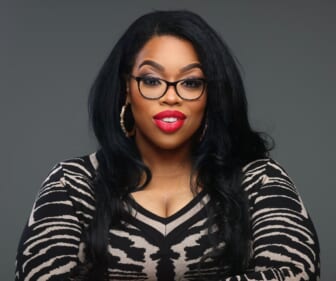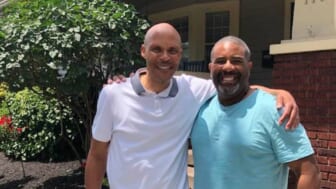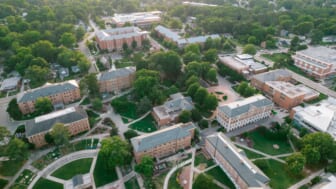
Like much of the rest of Black America, Antentor Hinton, Jr.’s reaction to the murders of George Floyd and Breonna Taylor was wanting to do something. His parents sensed it; that’s why they asked him a pivotal question.

“They asked me to consider what I could do within the science community to make an impact,” he told theGrio. Hinton, who is currently an assistant professor in the department of Molecular Physiology and Biophysics at Vanderbilt School of Medicine, was in the beginning stages of his career at the time. His parents wanted him to know marching wasn’t the only way he could effect change.
“They told me the goal with anything I do should be to make a lasting impact that can help create change,” he said.
An equally crucial conversation with a mentor, Dr. Ishmail Abdus-Saboor, would help crystallize Hinton’s initiative. “He told me about how his experience of not having anyone in his classrooms who looked like him when he was in school is still being experienced by his own graduate students,” Hinton said.
While the pandemic has been credited for a rise in Black students applying to and attending medical school, Hinton said the trend has not reached traditional science programs. Accordingly, Dr. Abdus-Saboor advised that it was crucial to lift Black scientists so that his and other students could see how well represented Black people are within science.
“I told him I really liked his idea and asked if I could try to amplify it,” Hinton explained. With Abdus-Saboor’s blessing, Hinton reached out to his colleagues in The Community of Scholars, an organization of minority scientists and those who have proven allies in the science arena, and expressed interest in creating a list of Black scientists within the field.

From there, the first 100 Black Scientists list was created. Its success prompted a list of an additional 100 Black scientists to be created. And in December 2020, the official 1000 Inspiring Black Scientists in America was published. Each list was published on Cell Mentor, the online companion to Cell Press, the premier scientific academic journal.
“They’re the Oscars of the science world,” Hinton joked. “Their readership is so wide within the field and for them to partner with us in this way really speaks to the need to creating more opportunities of visibility for Black scientists.”
Bringing greater visibility to scientists who look like us is Hinton’s ultimate goal. “Too often, it’s said there are no Black people in science and that’s just not the truth.” Hinton further explained that his list removes the false—and surprising—assumption that Black scientists are lazy.
“When you look at this list alongside the indexes of performance within the field, you say that Black scientists are not only performing well but at extremely high levels,” he said.
Ultimately, Hinton hopes the list inspires students to pursue science—just as spending time with his grandparents in their garden as a child inspired him. From that early exposure, Hinton attended Winston-Salem State University, a historically Black college in North Carolina. Majoring in biology with a minor in chemistry, Hinton said WSSU showed him what was possible. “I had professors like Dr. Morris J. Clarke, who pushed me to be the best I can be and I want other students to see this list and find that same kind of push in it.”
Hinton, along with The Community of Scholars have hopes of securing funding and greater partnerships to release a more expansive and interactive list of 10,000 Black scientists in the future. “There’s really no excuse for anybody to say they can’t find a Black scientist to cite or interview,” he said, “because we are here.”

Candice Marie Benbow is theGrio’s daily lifestyle, education and health writer. She’s also the author of Red Lip Theology: For Church Girls Who’ve Considered Tithing to the Beauty Supply Store When Sunday Morning Isn’t Enough. Find her on Twitter and Instagram @candicebenbow.
TheGrio is now on your TV via Apple TV, Amazon Fire, Roku, and AndroidTV. Also, please download theGrio mobile apps today!
Source link
 Black America Breaking News for the African American Community
Black America Breaking News for the African American Community

